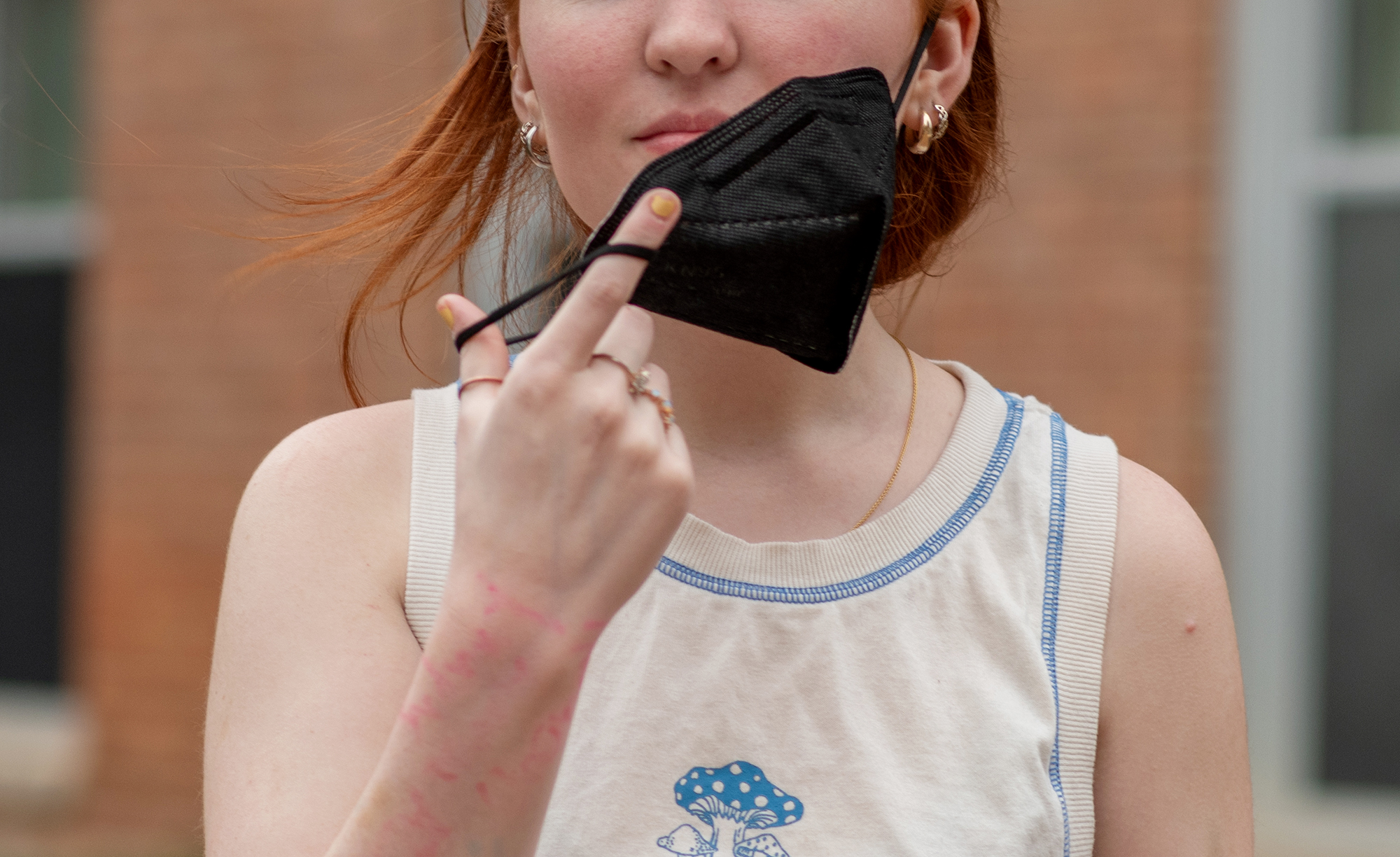By Savannah Grooms, Parker Leipzig and Victoria Stavish
Amid a surge in COVID-19 cases, some students and staff members at the University of Maryland are unsure about the next steps after testing positive for the virus, raising questions about the university’s COVID-19 policies.
University community members reported 212 COVID-19 cases in the first nine days of this semester. This university’s Department of Resident Life said in an email on Sept. 13 that students, faculty and staff who test positive for COVID-19 must report their positive test results at return.umd.edu. If they are positive for COVID-19, students are also required to isolate for a minimum of five full days after the positive test result date.
Despite this university’s efforts to inform its student body about COVID-19 protocols, there’s a sense of uncertainty among some students regarding the appropriate actions to take when they test positive for the virus.
Felicia Shechtman, a senior environmental science and policy major, tested positive for COVID-19 on Sept. 4. Shechtman received no communication directly from the university, even after reporting a positive result, they said.
“I was not [aware of the protocol], I just looked it up,” Shechtman said. “They didn’t email me or anything. I just literally looked up the website and then followed those guidelines.”
Shechtman said they quarantined at home based on the university’s guidelines.
[Some expired COVID-19 tests are still usable. Here’s how you can check.]
In an interview with The Diamondback, university President Darryll Pines said the university does not provide designated COVID-19 isolation housing off campus. Students can isolate in their permanent residences if they live locally, and on-campus students have the option to shelter in their rooms.
Pines said students who live more than 300 miles from campus can isolate on campus or in a hotel, and the university provides some financial assistance for those who cannot afford to do so.
“We continue to work with our campus partners — the health center, the Department of Resident Life, residential facilities and the campus community — to make people aware of the current COVID-19 policies,” Pines said.
But Neil Sehgal, an assistant health policy and management professor at this university and associate health systems and population health professor at the University of Washington’s public health school, believes this university has made missteps in its response to the case surge, despite its guidance on COVID-19 and isolation.
Sehgal said these missteps include a decrease in masking recommendations and a lack of mask distribution to campus community members.
“By putting the burden of compliance on the individual, what we’re doing is we’re making the ability to avoid the risks of COVID contingent on your resources personally, and what that does is perpetuate inequities,” Sehgal said.
Rhian Evans, a freshman journalism major, had COVID-19 earlier this month. Like Shechtman, she also took advantage of the university’s guidance, she said.
“I had to go onto the UMD Health Center Website to be like, ‘What do I do now?’” Evans said. “I was still a little confused but they had a HEAL line that you could call … It was definitely really helpful.”
The university’s HEAL Line is an information line available for students or employees who have questions about recent positive COVID-19 tests, exposures or symptoms, according to the health center.
Evans said she was met with an automated recording when she called the HEAL Line. After answering questions, Evans called her mom, who works about 30 minutes away, to pick her up so she could isolate off-campus for five days.
“Luckily she was in a position where she was like ‘Okay, let me leave work,’” Evans said. “I know that there’s so many people that couldn’t do that.”
[UMD revokes health insurance waivers for more than 100 international graduate students]
For other students, like freshman journalism major Amanda Sinofsky, contending with the possibility of a COVID-19 diagnosis is more complicated. Sinofsky said that if she were to get COVID-19, she would have to choose between staying in a hotel or driving three hours home.
“I didn't know that you couldn't quarantine on campus until I actually got here,” Sinofsky said. “Out of curiosity, I looked it up and then it said you can't stay on campus.”
The HEAL Line experienced a significant surge in calls from students and employees seeking answers at the start of the fall 2023 semester, coinciding with a notable rise in COVID-19-positive cases in the area, according to data obtained by The Diamondback.
Despite the surge in HEAL Line calls, case numbers aren’t as accurate as they used to be, according to Sehgal.
Due to the prevalence of at-home tests, the actual number of positive cases in a given area is often underreported, he said.
“The landscape of testing has changed pretty dramatically. In the first year-plus of the pandemic, if you wanted to get tested, you had a laboratory test that was reported, and for you to be on-campus, you had regular testing,” Sehgal said. “We had an abundance of data that described what the landscape of incidents was like and that has largely changed.”
After the spike in COVID-19 cases in the first nine days of this semester, health center director Spiro Marinopoulos sent out a statement advising that getting vaccinated against COVID-19 is a way to reduce the risk of severe illnesses for some individuals and those with compromised immune systems.
Sehgal said the university should emphasize the importance of the booster more strongly, as it is a preventative measure that recommended by the Centers for Disease Control.
Assistant news editor Akshaj Gaur contributed to this story.



